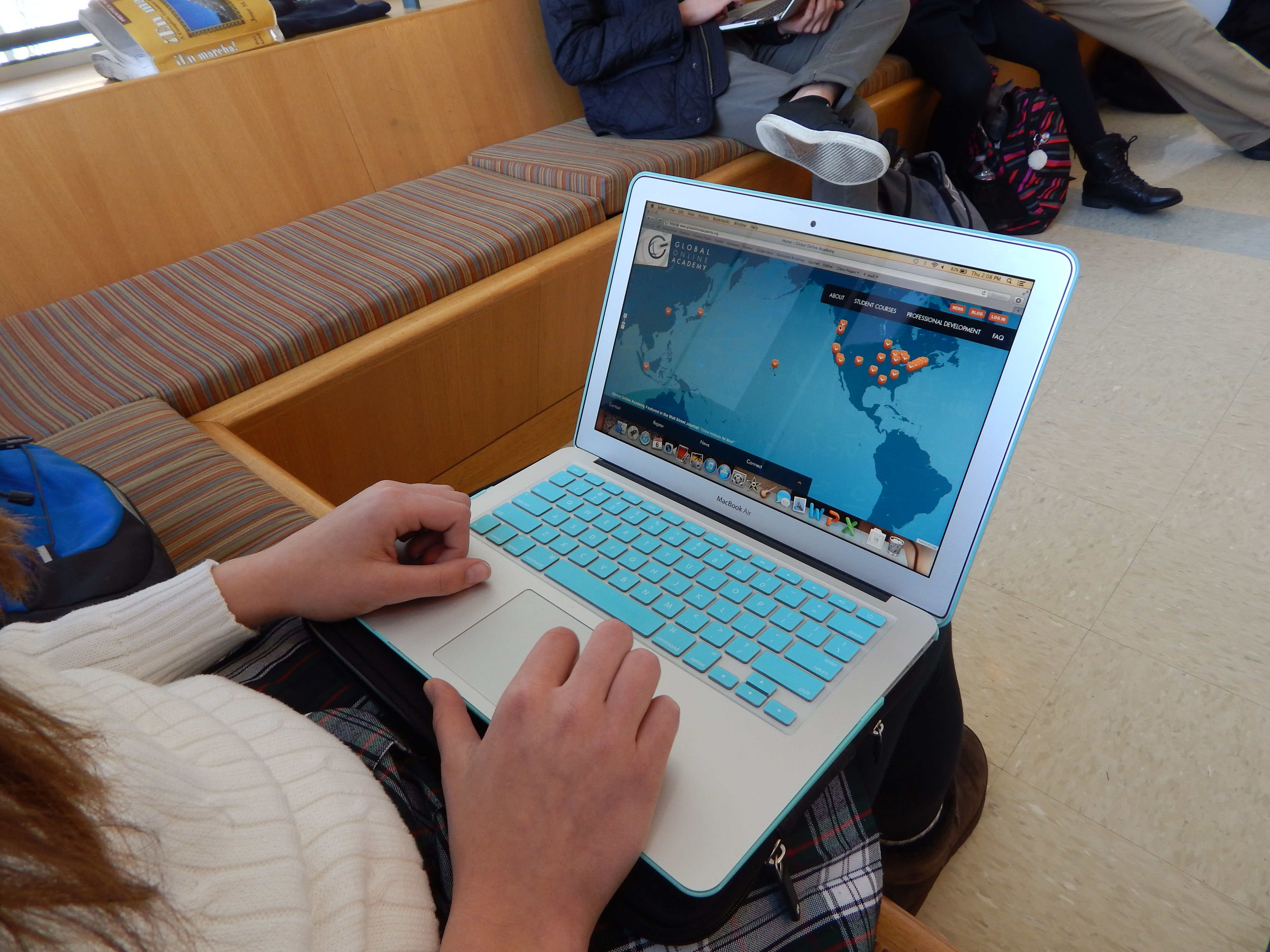Christina Chambers ’16: Episcopal is considering taking part next year in the Global Online Academy (GOA), an online program which offers rigorous and creative courses not found within the ordinary high school curriculum. Classes, which are as varied as Global Health and Neuropsychology, to 9/11 in a Global Context and Digital Photography, would benefit students and teachers alike.
Global Online Academy’s ranks include independent schools from around the world, such as King’s Academy in Madaba-Manja, Jordan, to the Isidore Newman School in New Orleans. Germantown Friends School, one of the founding schools of GOA, is the nearest member school to Episcopal. As of now, Episcopal has not been granted membership to the prestigious program, but Dr. T.J. Locke, Head of School, is hopeful.
“I submitted a letter of interest saying why EA would be a good fit,” stated Locke. “My last school was a member, so I have a great relationship with the people there, and it is one of the things that can separate our school.”
“They’re looking for schools with great academic reputations, they’re looking for geographic diversity,” Locke explained. “Once we are in, students would have access to all courses in their catalogue, but how that would work is what we haven’t figured out yet.”

Photo Courtesy of Sarah Barr ’16
He continued, “It’s just a matter of timing and seeing if we can get all of the details worked out for next year. For example, will the courses affect student GPA? Will they count toward graduation requirements?” Deciding these policies and procedures would be the next step after getting accepted, but teachers would also have to take course load work into account.
“The courses are really hard,” Locke mentioned. “We may put some restrictions on what students we allow to take them, but GOA does not.” However, his perspective on the courses’ difficulties did not change his mind about the program’s overall positive effect.
“Students get a great experience with online learning, meet kids from around the world, and try something different,” said Locke.
Meg Rabinowitz, the founding teacher of Media Studies at GOA, also encourages her students to try different things with online teaching. Her course began as a seminar for her students at Germantown Friends School, but “my colleagues believed it would make a great addition to the initial course offerings because […] it intersects the study of literature, history, and art,” she remarked.
However, teaching online differs from a classroom in various ways.
“Teaching and learning take place in ways that are radically different and somewhat familiar. I work with students one on one in online discussions and get to know them as individuals,” Rabinowitz said. Her class sizes were about the size of Episcopal’s classes with under seventeen, and her students worked in small groups often, but within an international community.
“The greatest challenges include getting used to the technology [and] the time differences,” she explained. “There is also a sense that the sun never sets on GOA — you are always creating curriculum, refining your pages, responding to student work, checking in on discussions; it’s a lot of hard work.” Rabinowitz summarized the overall experience as “Illuminating, instructive, and expansive.”
“It looks very interesting,” commented Rohan Rajagopalan ‘14. “I think high schools are somewhat limited in the courses they can offer. The course listing on the academy website seems to offer a breadth of courses that EA students otherwise could not access…I think this really allows students to explore the subjects they enjoy the most which is where they will learn the best.”
Kevin O’Brien, Upper School English teacher, first found out about GOA in an email from Locke and was interested immediately.
“I think there is something to be said for having kids from different countries, from all around the world, there are some cool aspects to that” noted O’Brien. However, he maintained, “It is not meant to replace classes, but to supplement them because there is a certain responsibility that comes with an online class.”
O’Brien stressed that, “at a day school like EA, where most of the kids are from the mainline and have the same perspective, this program offers a totally different one as the idea is using technology and embracing that platform to widen horizons.”